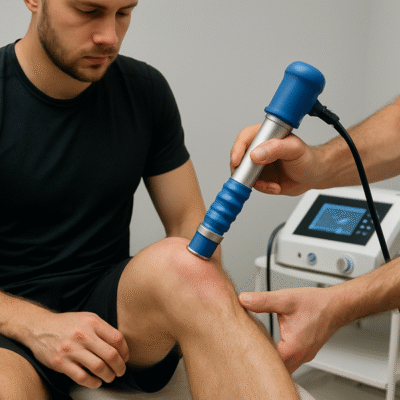The holiday season is often associated with festive meals, indulgent treats, and family gatherings. While this time of the year brings joy and togetherness, it also introduces dietary challenges that can affect your health, especially your kidneys. Many people underestimate how much their eating habits during the holidays can put an extra load on these vital organs. Understanding how holiday eating impacts kidney function can help you enjoy festivities without compromising your health.
The Kidneys: Your Body’s Natural Filters
Before diving into the effects of holiday foods, it’s essential to understand the role of the kidneys. These bean-shaped organs filter waste products, regulate fluid balance, maintain electrolyte levels, and control blood pressure. They process everything you consume—food, drinks, and even medications. When your diet suddenly changes, such as during holidays when rich and salty meals are more common, the kidneys must work harder to keep the body balanced.
Salt-Rich Foods and Kidney Stress
One of the biggest dietary concerns during the holidays is excessive salt intake. Dishes like roasted meats, gravies, pickled items, and processed snacks often contain high sodium levels. Consuming too much salt forces the kidneys to retain more water to dilute the sodium in the bloodstream. This can increase blood pressure and strain the kidneys. For individuals already living with high blood pressure or kidney disease, holiday overeating can significantly worsen their condition.
Protein Overload from Festive Meals
Turkey, lamb, beef, and other protein-rich foods are staples of holiday celebrations. While protein is vital for building and repairing tissues, too much of it can burden the kidneys. The breakdown of protein produces urea, a waste product that must be excreted through the kidneys. Overeating protein-heavy meals can increase the kidneys’ workload, making it harder for them to filter effectively. People with chronic kidney disease (CKD) are particularly vulnerable to this kind of dietary stress.
Sugar and Sweets: Hidden Kidney Risks
Holiday desserts cakes, cookies, chocolates, and pies are hard to resist but can be harmful if consumed in excess. High sugar intake can spike blood glucose levels, leading to insulin resistance and weight gain over time. For people with diabetes or prediabetes, this is especially concerning because poorly controlled blood sugar is one of the leading causes of kidney damage. Even a few weeks of consistent overindulgence in sugary foods can contribute to long-term risks.
Alcohol Consumption and Dehydration
Alcohol is another holiday staple that can affect kidney function. Excessive drinking leads to dehydration since alcohol acts as a diuretic, making you urinate more frequently. Dehydration reduces blood flow to the kidneys, impairing their ability to filter toxins. Over time, binge drinking can contribute to kidney disease and increase the risk of kidney stones. Even for healthy individuals, combining alcohol with salty foods and rich meals adds significant stress on the kidneys.
The Link Between Weight Gain and Kidney Health
It’s no secret that holiday eating often leads to weight gain. Even small increases in body weight can affect kidney health by raising blood pressure and blood sugar levels. Obesity is an independent risk factor for kidney disease because it increases the demand on the kidneys to filter more blood than usual. Carrying extra weight also promotes chronic inflammation, which can gradually damage kidney tissues.
Hidden Ingredients in Holiday Foods
Beyond salt, sugar, and protein, many holiday dishes contain phosphorus and potassium minerals that are usually healthy but can be harmful in excess. Packaged gravies, baked goods with additives, and processed meats often contain high levels of phosphorus. Similarly, potassium-rich foods like dried fruits and certain desserts can cause complications for people with kidney disease. Without moderation, these ingredients silently add to the kidney load.
How to Protect Your Kidneys During the Holidays
Enjoying holiday meals doesn’t mean you have to harm your kidneys. Small but mindful changes can help you strike a balance between celebration and health:
- Practice portion control: Instead of piling your plate, take smaller servings and savor each bite.
- Limit salt intake: Choose fresh, home-cooked options over packaged or processed foods.
- Balance your plate: Add vegetables and fiber-rich foods to offset heavy proteins and fats.
- Stay hydrated: Drink plenty of water, especially if consuming alcohol.
- Watch sugar intake: Limit desserts to occasional treats instead of multiple servings.
- Be cautious with leftovers: Holiday leftovers often get saltier and heavier after being reheated with sauces and seasonings.
Who Should Be Extra Careful?
While everyone benefits from mindful eating, certain groups must be especially cautious during holiday meals. People with chronic kidney disease, diabetes, high blood pressure, or a history of kidney stones should pay close attention to what they consume. Even a few days of unhealthy eating can trigger complications for these individuals. Consulting a doctor or dietitian before the holiday season may help create a personalized plan for safer eating.
Get Renal Function Tests at Abu Bakar Lab
The Bottom Line
Holiday eating is an enjoyable tradition, but it comes with health responsibilities. The kidneys, as the body’s natural filters, work tirelessly to process the food and drinks consumed during festivities. Excessive salt, sugar, protein, and alcohol can put an added strain on these organs, particularly in individuals with pre-existing health conditions. By making conscious food choices and practicing moderation, you can protect your kidneys while still enjoying the holiday season. Remember, balance is the key to celebrate with joy but also with health in mind.



